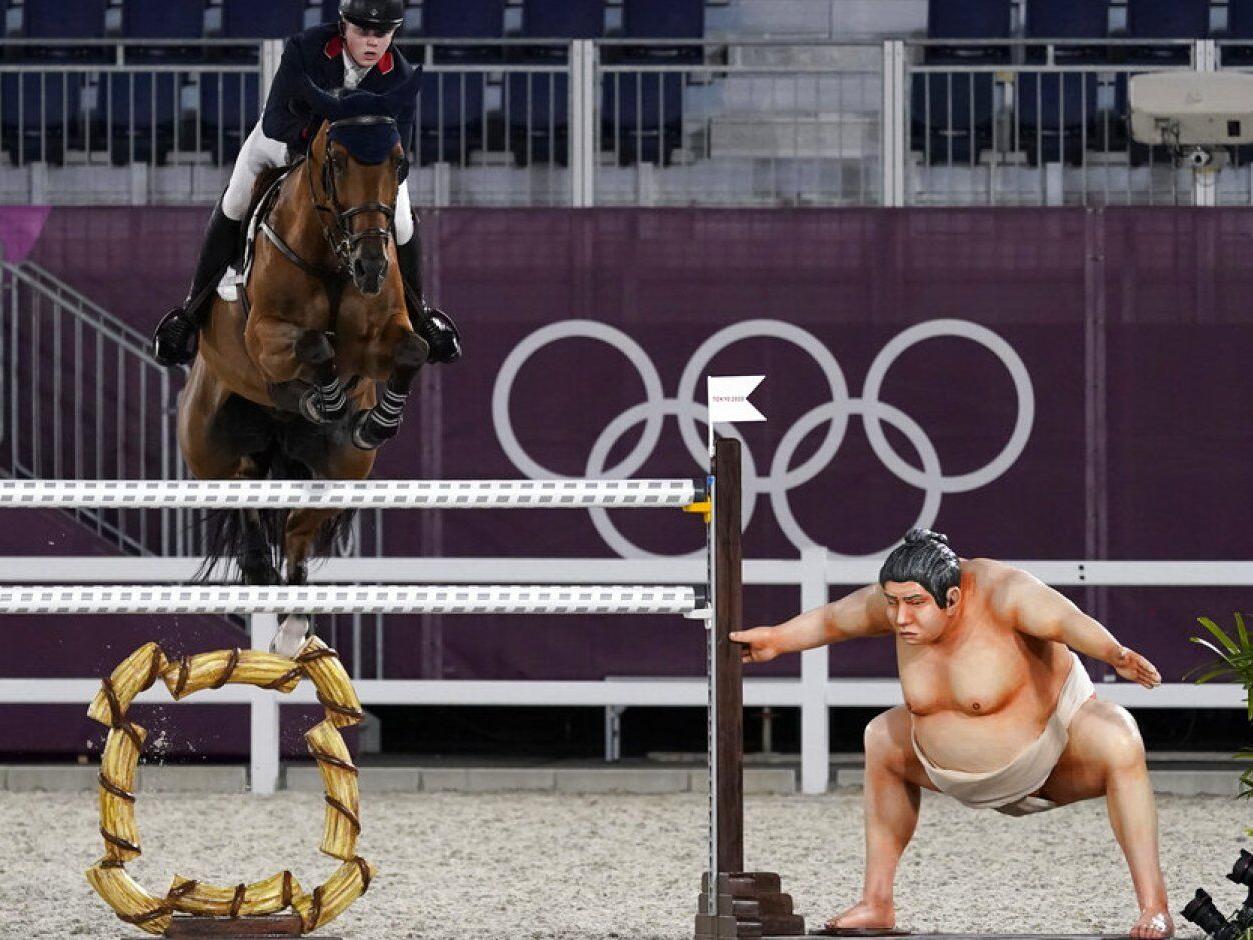August 6, 2021
-Washington Examiner
An unnervingly realistic statue of a sumo wrestler has been removed from the Tokyo Olympics equestrian course after riders complained the display was scaring their horses and preventing them from qualifying.
The rotund wrestler sat beside the 10th obstacle on the course with his arms spread and legs wide in a pre-fight pose. Several riders complained that the statue’s presence startled their horses, causing them to hesitate on the nearby jump.
Sumo wrestlers traditionally wear a loincloth called a mawashi which covers their groin and wraps around their waist. However, the garment leaves the backside of the wrestler largely uncovered. The statue is positioned with its back to the riders and horses as they make the turn for the obstacle, meaning that many athletes are greeted unexpectedly with the sumo wrestler’s large, bare posterior.
This is the statue causing all the problems in Tokyo. The life-sized statue of a Japanese sumo wrestler has been spooking the horses competing in the Olympic equestrian events. #TokyoOlympics #TokyoOlympics2020 #yyc #sumo @mazmcfly pic.twitter.com/sDLKy6vK3A
— XL 103 Calgary (@XL103Calgary) August 5, 2021
Sumo is the national sport of Japan and the oldest active organized sport, dating back to antiquity. Sumo can be found in some of the country’s oldest written records and is a key part of the Japanese creation myth. It is an important part of Japanese cultural heritage and is used often in marketing for Japanese tourism.
The sport is also tied deeply to the Shinto religion and is often described as a ritual meant to please the gods and scare aware evil spirits. Grand champions, called yokozuna, are adorned with prayer papers frequently seen at religious shrines. Additionally, matches are supervised and refereed by Shinto priests.
Sumo is not an Olympic sport, most likely due to its lack of a strong following outside the island nation. However, the International Sumo Federation is a member of the Association of IOC Recognized International Sports Federations.
The sport has seen a resurgence in popularity after several grand champions were crowned in recent years. Reigning grand champion and crowd favorite Hakuho, a Mongolian immigrant, has accumulated one of the best records in the history of the sport.




